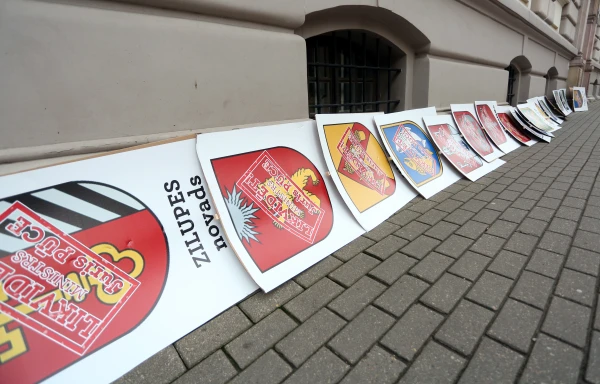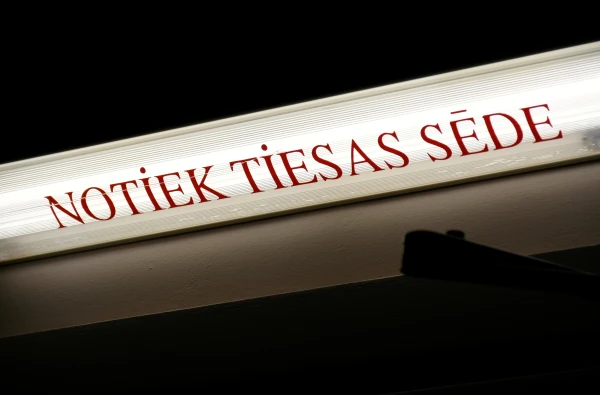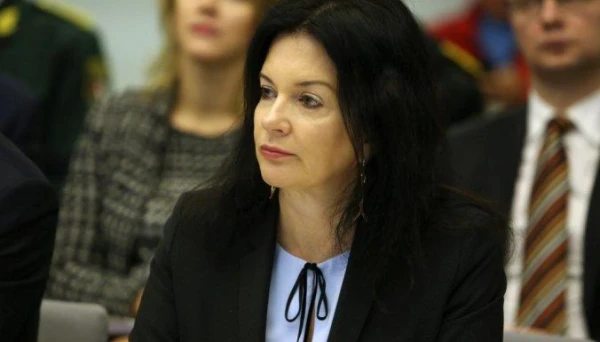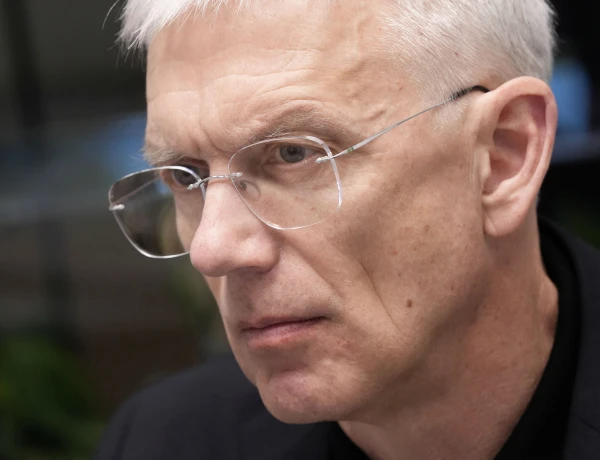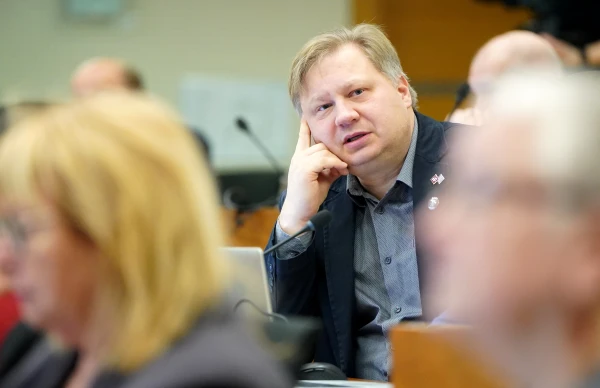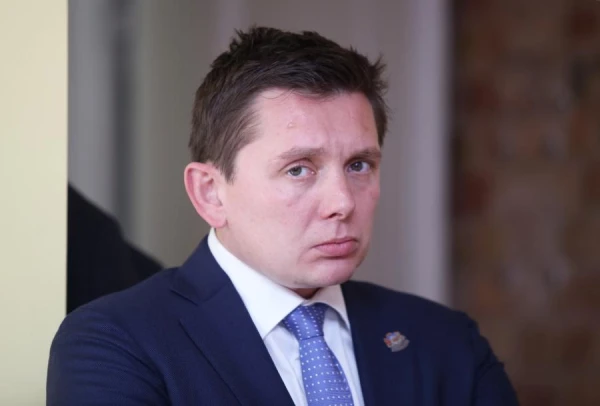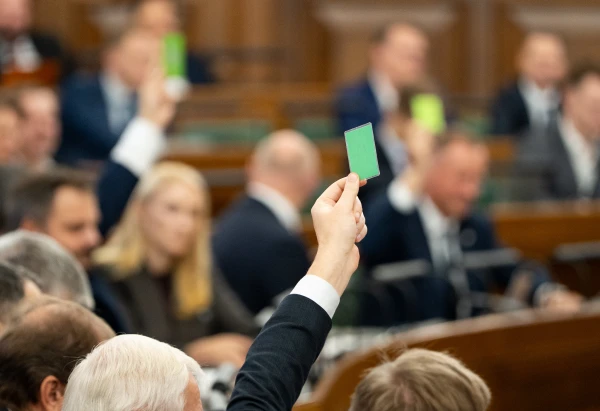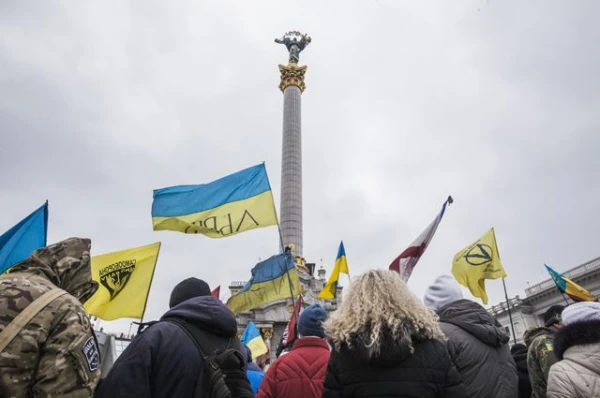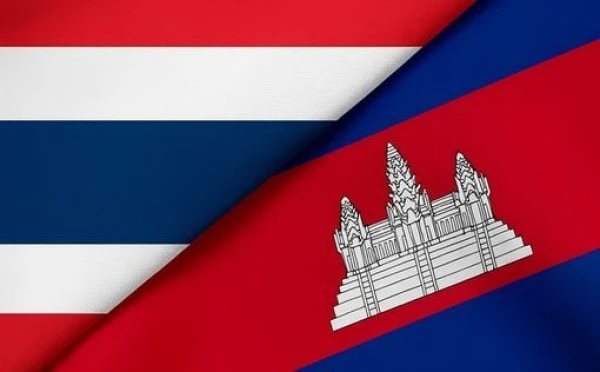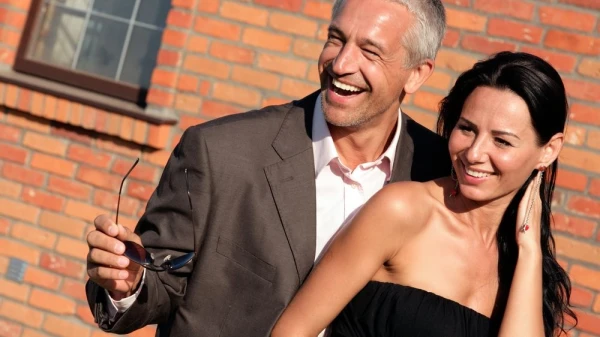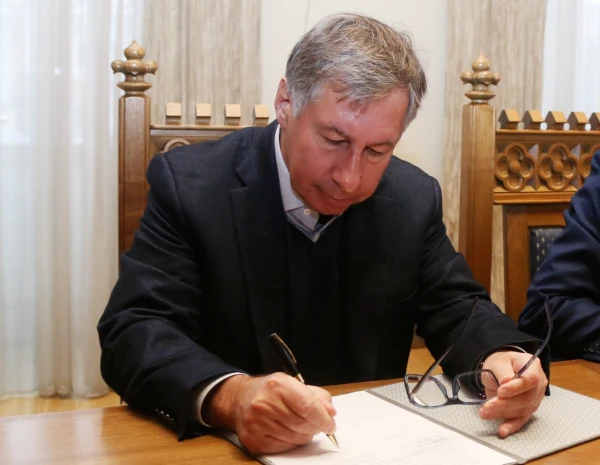
Janis Karklinsh, the lawyer of Russian billionaire Petr Aven, believes that the conclusions published at the end of October by the Advocate General of the Court of Justice of the European Union (CJEU), in which he recommends rejecting Latvia's appeal in the case of EU sanctions against billionaires Aven and Mikhail Friedman, will be taken into account in the final decision.
Karklinsh, in a conversation with the LETA agency, emphasized that the opinion of the Advocate General is significant, as in most cases, the court follows the proposed legal logic or at least gives it substantial weight. Although the Advocate General's opinion is not formally binding, in practice it often determines the direction of the decision and serves as an objective legal guideline.
Considering that only 5–6% of appeals are satisfied, it can be mathematically concluded that the state's chances of winning this case are extremely low, the lawyer believes.
As previously reported, on October 30, the conclusions of the Advocate General were made public in the case where Latvia appealed the decision of the General Court of the EU to lift sanctions against Aven and Friedman for the period from February 28, 2022, to March 15, 2023.
The Advocate General recommends rejecting the appeal and obliging Latvia to cover the legal costs of the consolidated cases.
The Ministry of Justice emphasizes that the conclusions of the Advocate General are advisory in nature and do not constitute a final court decision.
The Advocate General's opinion diverges from Latvia's position; however, the country continues to uphold its viewpoint and intends to defend its interests until a final decision is made. The ministry stresses that the EU sanctions against Aven and Friedman remain in effect, and on September 12, the EU Council unanimously decided to extend them for another six months.
Latvia, consistently supporting Ukraine and condemning Russia's aggression, filed an appeal with the CJEU to confirm its principled position on extending sanctions, preparing new ones, and maintaining pressure on Russia to weaken its ability to wage war against Ukraine.
The ministry notes that Advocates General assist the CJEU in fulfilling its tasks. Unlike judges, they act as consultants and do not participate in decision-making on cases. For the cases assigned to them, they express legal opinions while maintaining complete objectivity and independence. In their conclusions, Advocates General typically analyze the case in detail, especially its legal aspects, and suggest possible solutions to the court.
Earlier, the Latvian government decided to appeal the CJEU's decisions that lifted EU sanctions against Aven and Friedman. Later, the appeals were consolidated into one case.
In filing the appeal, Latvia requested the court to overturn these decisions and maintain the originally imposed sanctions against both entrepreneurs.
The Ministry of Justice justifies this by stating that at the time of the decision on sanctions, there was initial evidence that both Aven and Friedman provided material or financial support to individuals responsible for the annexation of Crimea or the destabilization of Ukraine.
Earlier, the CJEU annulled the EU Council's decision of February 28, 2022, to impose sanctions against Aven and Friedman; however, Latvia urged the Council to appeal.
Aven's lawyer, Janis Karklinsh, previously told the LETA agency that Latvia, in filing the appeal, acted under the influence of emotions, not assessing the court decision, which he believes is "absolutely legally correct and completely devastating."
He acknowledged that the imposition of sanctions at the beginning of the war was a justified political step; however, subsequently, the sanctions policy should have been refined to make it more effective and targeted. According to him, it is necessary to assess whether the fact that a company in which Aven is a minority shareholder pays taxes in Russia constitutes support for the war.
The EU court stated in its decision that none of the grounds outlined in the legal acts for including Aven and Friedman in the sanctions lists were sufficiently substantiated, and their inclusion in the list of sanctioned individuals was unjustified. Regarding their continued presence on the list, the General Court of the EU ruled that the EU Council did not provide any additional evidence compared to that on which the initial sanctions were based.
Aven and Friedman were shareholders of "Alpha Group," which includes one of the largest Russian banks – "Alpha Bank."
Earlier this year, reports emerged that Aven exited the capital of the commercial bank "Alpha Bank," selling his stake to business partner Andrei Kosogov, as reported by the Financial Times. It was Aven's involvement in the capital of this bank that led to the imposition of sanctions against him.
The court believes that although the arguments of the EU Council may indicate some connection between Aven and Friedman with Vladimir Putin or individuals close to him, they do not prove that they supported actions or policies undermining or threatening the territorial integrity, sovereignty, and independence of Ukraine, nor did they provide material or financial support to Russian officials responsible for the annexation of Crimea.
Sanctions have been imposed against Aven and Friedman by the US, UK, EU, and other countries, as these states consider them close to the head of the Russian Federation, Putin, and serving the interests of the Kremlin, including aggression against Ukraine. Ukraine has also imposed its own sanctions against them.
Aven holds Latvian citizenship and has been living in Latvia with his family since the beginning of the Russian invasion of Ukraine in 2022. Meanwhile, Friedman, who also holds Israeli citizenship, continues to live in Russia.
